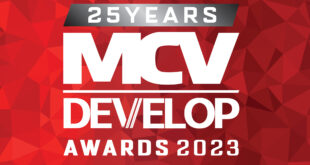QA has come a long way in recent years, but with issues around representation, automation and underappreciation, have things come far enough?
For many in the games industry, a job in quality assurance represents the first rung on the development ladder. It was one this humble correspondent was about to step on when his head was turned by an offer to join the staff of a leading games magazine instead. In the 25 years since that fateful decision, he’s often wondered if he made the right choice. Now, having heard from seven dedicated and passionate QA professionals, he realises he probably did and that the games he might have had a hand in were all the better for someone else’s being there instead.
We’ve checked in with seven top QA professionals to see where things stand. Next up is Steph McStea, QA lead at Double Eleven.
Leaving aside matters of personal taste, critical acclaim and popularity, and wearing only your QA hat, which game – other than your own – has impressed you the most over the last 12 months?
Definitely ‘Viewfinder’. I remember the first time I saw a prototype for it on Twitter and my mind pretty much exploded – it was one of those moments where my instant thought was “oh my god, doing QA on that is going to be insane”. Such an interesting concept, and the execution looks flawless.
What’s been the biggest challenge that QA teams have had to face in recent years?
Being welcomed in dev spaces has been a big challenge for QA for a long time, and sadly this continues to be the case in a lot of dev environments. There are still studios who deny QA access to various floors of the building so they cannot mix with other devs, where they aren’t counted as part of a dev team, and are often left out when it comes to conferences and gaming events. This is getting better – slowly but surely – but it is a painfully common issue that a lot of QA teams still face on a day to day basis.
QA teams have always been frontline combatants when it comes to crunch. How far along are we from the c-word falling out of use?
I think this depends on the studio, really. I know some studios have successfully removed any need for crunch for all departments, while others still have their teams crunching for months on end. I’d say with more folks speaking up it has sparked awareness on a larger (and more public) scale, so hopefully that has created a reluctance from studios to get to that point.
Unionisation has recently become a hot topic? How has that come about and do you foresee increased levels of unionisation across the industry – in QA especially – as inevitable?
Simply put, a lot of QA teams have had enough of concerns not being heard or taken seriously internally. These unions are the result of QA teams taking things into their own hands, as often talks with their studios have led to very little to no change. We’ve all read the awful stories that have come out about the way that QA are treat at various studios. This is still very much an on-going issue, so it was inevitable that teams were going to start unionising as a last resort to try and have their voices heard. If the games industry continues to treat QA the way it does, there’ll no doubt be more news of further unions in future. I deeply hope that more studios will take note of this and ensure that they listen to the voices of their teams before things have to be taken further.
What is your favourite commercially-available tool that you discovered or made use of this year?
I know I am shamefully late to the party, but I recently finally gave Trello a try after years of hearing people talk about it. I’m someone who likes to make checklists and draw happy faces next to completed tasks. Finding out that Trello not only allows me to add little pictures but also colours was a wonderful addition to my workflow. As well as marking things complete and getting a satisfying block of green with a happy face on top, I can also mark when something is WIP, which saves the terror of stopping mid-task and getting lost when I come back to my desk.
How embedded are AI/automated tools in today’s QA environment and how have they made things better, or perhaps worse?
I’ve definitely noticed that automated testing tools are getting more common – or at least more people are advertising them to me on LinkedIn than they used to! I’d say so long as teams are not solely depending on them, they can certainly be helpful. For example automating simple smoke testcases can save a lot of time and help detect if a build is broken much faster than if a tester were doing it manually. Personally I’ve not used them on any previous projects but that could well change in future.
What other challenges do you see on the horizon for QA and how can teams and individuals best be prepared to meet them?
With more studios becoming open to remote work, I’ve noticed that a lot of places don’t include QA in this (be it due to logistics of needing more dev kits, or something else). I think there’s a real likelihood that QA will continue to be left out from this and forced to work from the office full time. This is something that QA teams need to be prepared to encounter and (if desired), stand up against. We made it work during a global pandemic – it can still work now.
Are you optimistic about the future of QA? Why?
I am! There has definitely been a shift in recent years where folks are starting to appreciate their QA teams more. Quite often I’ll see a Twitter thread from someone in another dev role praising QA, and calling for us to be valued more by peers.
Lots of those who felt QA don’t belong are part of the ‘Old Guard’ of the video games industry so to speak. With so many folks joining with a fresh mindset I feel this is really helping how QA is viewed. We’re even being included in more award ceremonies, and interviewed during award shows now, which is a huge leap compared to a few years ago.

 MCV/DEVELOP News, events, research and jobs from the games industry
MCV/DEVELOP News, events, research and jobs from the games industry




